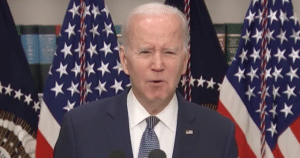Biden, Sullivan discuss options on Iranian nuclear threat: Report
President Joe Biden recently reviewed potential military responses to Iran's nuclear program during a strategic meeting with his National Security Adviser, Jake Sullivan.
Amid growing concerns over Iran's advancing nuclear capabilities, no definitive plan has been approved, and no active talks of military action are ongoing, as Fox News reports.
Biden's meeting with Sullivan, which occurred about a month ago, focused on discussing various hypothetical scenarios and corresponding responses concerning Tehran's nuclear activities. The president has not formulated any concrete decisions following these discussions.
Strategic discussions and concerns
During the briefing, Sullivan laid out different tactical possibilities, highlighting their strategic implications without advocating for any specific course of action. This session underscored the administration's cautious approach to a highly complex and sensitive issue.
In previous remarks, Biden cautioned Israel against executing unilateral operations targeting Iran's nuclear facilities. This warning came against a backdrop where some of his advisors suggested that the present moment might represent a strategic opportunity for action, given Iran’s purportedly weakened defenses.
Reports indicate Iran has accumulated uranium close to weapons-grade level, enhancing its nuclear weaponization capacity. Despite these tensions, the Biden administration has refrained from engaging in active conversations about launching military strikes.
Evaluating Iran's capabilities
Concerns loom over Iran's acceleration in nuclear development and what some perceive as provocative advancements. Nonetheless, the necessity of a military strike remains debatable, and any potential action must weigh the current administration's timeline before a new presidential term begins.
Analysts have pointed out that Iran's defense systems, including air defenses, missile strength, and allied forces, may be less robust than before. This potentially diminishes retaliatory threats, presenting a tactical advantage should a strike be deemed necessary.
Sullivan conveyed the changing nature of Iranian officials' public statements, hinting at possible shifts in their strategic stance. This shift, he noted, demands careful examination, especially as it may influence future policy decisions.
Deliberation within administration
Some aides reportedly perceive Iran's nuclear advancements as heightening the imperative to evaluate military options. However, the importance and urgency of preventive action against Iran have prompted a measured approach thus far.
Biden's administration has been meticulously evaluating whether current provocations warrant immediate action. This evaluation involves considering not only military options but also diplomatic and economic pressures that could enforce compliance without escalating to conflict.
A key consideration is the potential global repercussions of any military engagement. As Israel remains on high alert due to Iran's nuclear endeavors, maintaining regional stability has been pivotal in the U.S. strategy.
Balancing strategy and diplomacy
As discussions continue, the U.S. administration must balance both military and non-military solutions. Ensuring that any proposed action aligns with broader international objectives is critical to the administration’s deliberations.
Sullivan addressed the inherent risks involved with making enemies in a volatile region, emphasizing the need for vigilant monitoring as developments unfold. His remarks reflect the intricate balance required in crafting a comprehensive strategy towards Iran.
In conclusion, while the Biden administration explores various options concerning Iran's nuclear advancement, any decision remains contingent on further analysis and evolving circumstances. As the clock ticks towards a potential transition of leadership, these considerations will shape the future direction of U.S. policy.



